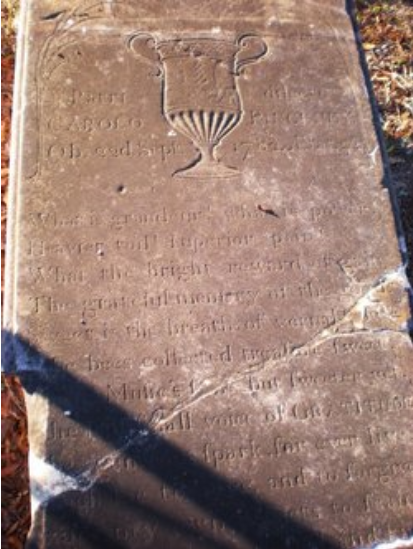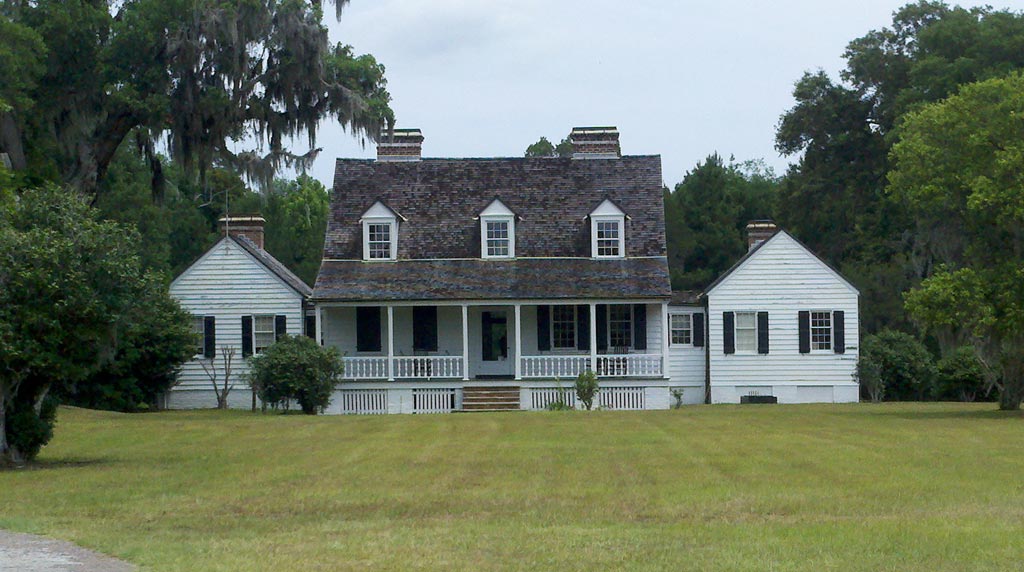COLONEL CHARLES PINCKNEY
March 7, 1731 (?) - Sept. 22, 1782
Sharing the history of the Pinckney family can be a real challenge, as pretty much every Pinckney son is named either Charles or Thomas, each of whom in turn named their sons Charles and Thomas, though occasionally with a William thrown in, down through the generations. The family continues to do so today. It is quite common, I've found in researching various sources, for geneologists and writers to confuse details of the lives of the various fathers and sons, even occasionally having one married to a woman from the next or previous generation. You've got to carefully scrutinize the dates of the Pinckney about which you are speaking to make sure that the actions attributed to that Pinckney are indeed plausible within their lifespan.
I've tried my best to keep them all separated and in their historical places, and have even given them nicknames that help keep fathers and sons (and mothers and daughters for that matter) straight. No disrepect is intended, and it does help distinguish one from another of the same name. And truly, if you see where I've perpetuated any confusion by attaching a spouse or action to someone that is inaccurate, I appreciate your letting me know.
The subject of this entry is for Col. Charles Pinckney, born March 7, sometime around 1732 - sources variously list his birth year as 1731, 1732 or 1733. He was the son of S.C. Commissary General William Pinckney and Ruth Brewton Pinckney (b. Jan. 6, 1703), a sister of wealthy merchant Miles Brewton and Patiot Rebecca Brewton Motte. Col. Charles' father, William, served as Master of Chancery, before joining his older brother, also named Charles, in setting up the first fire insurance company in America, the Friendly Society. Though the brothers' venture was profitable, Charleston's Great Fire of 1740 resulted in high damages, and William suffered financially. He sent his son to be cared for and educated by his wealthier brother Charles.
Col. Charles became a prominent lawyer and planter before being commissioned as a Colonel for the Charles Town Militia. He married his wealthy first cousin, Frances Brewton, (Col. Charles' mother [Ruth] and Frances' father [Robert] were siblings) and was very active in public life. The Pinckneys had several children, Charles (who I will refer to as Constitution Charlie), Thomas (of course), Miles Brewton, Mary and Rebecca.
The owner of several plantations already, including some along the Ashley River, Col. Charles Pickney bought Snee Farm plantation (715 acres at the time of purchase) on Sept. 17, 1754, from the widow of John Allen and soon afterward built a house there. A favorite family seat, the Pinckneys grew rice and indigo, and later sea island cotton. Snee Farm was listed on the National Register of Historic Places in 1973, though today about 90 percent of it has been developed for suburban residential use.
The historic house complex is operated by the National Parks Service as a national historic site, though no buildings or vegetation remain from the Colonel's ownership. Archaeology, however, has revealed the structural foundations of his house, as well as that of the plantation's slave village.
Col. Charles was elected to the General Assembly, the lower house of provincial government in South Carolina. In 1775, he was elected president of the South Carolina Provincial Congress.
An American Patriot, Col. Pinckney was captured by the British when the city fell in 1780, and afterward was among more than 160 men in Charles Town who swore an oath of loyalty to the British in order to protect his properties from being confiscated. Unfortunately, when the Americans ultimately prevailed, they did not look kindly upon the Colonel's defection and in February 1782 fined him a 12 percent penalty to keep his lands.
Now a broken man, Col. Pinckney died later that year. His obituary states that he was a "Counsellor [sic] at Law; a gentleman equally admired through life not more for professional knowldge and integrity than unbounded philanthroy which marked his character and influenced his behavior toward all ranks of men." He left Snee Farm to his son Charles, who went on to become a key framer of the U.S. Constitution. Unfortunately, Constitution Charlie spent more time on governmental matters than he did his business affairs, and therefore had to sell Snee Farm in 1817 to settle his debts.
So where is Col. Charles buried? Contemporary news reports said he was buried at St. Andrew's Church in West Ashley near where he died. His will, however, indicated that he was to be reinterred at St. Philips Church downtown. There his tombstone reads (spelling and punctuation as is): "Sacred to the Memory of The Honorable Charles Pinckney For Many years an eminent Counsellor at Law in thie City. The unbounded philanthropy made him respected And beloved and his benevolence and affability rendered Him a valuable friend and agreeable acquaintance. He died at Ashley River Universaly lamented on Sunday the 22nd of September 1782. Etat 50. In grateful rememberance of The virtues of a beloved parent, his affectionate son has caused this monument to be erected...." Most people accept that he was interred (or at least reinterred) at St. Phillip's.
Yet here we find an additional memorial stone to Col. Charles in Christ Church. This memorial stone was originally erected at Snee Farm and some note was perhaps placed there rather than at his burial site because it lists his birth year incorrectly. When Snee Farm passed out of the family's ownership in the mid-19th century, the stone was moved to Christ Church.





